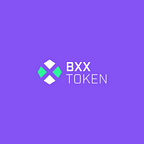Six Ways Blockchain Is Revolutionising Finance
A popular question asked by every futurist research lab across the world is, what is next in the blockchain finance industry?
Well, R3CEV, a consortium effort financed by some of the world’s largest banks, is busy trying to answer this question. Many startups have produced white papers concerning their particular innovation or use of blockchain technology all harbouring the most frequently asked question among us “How will things change?”
Here are the six ways blockchain technology is revolutionising finance:
Cross-border transactions and infrastructure
The digital age has not yet evolved to cross border transactions. Western Union, a big name, is running the same business they always have been. Banks continue to exercise a complex infrastructure for simple transactions, such as sending money abroad.
An infographic, prepared by Richard Gendal Brown, explains the infrastructure and intermediaries in cross-border banking.
The architecture is the result of the finance industry using highly secured private databases. Digitisation has meant we merely sort information into private databases much faster.
Blockchain technology allows financial institutions to create direct links with each other, avoiding correspondent banking. R3’s principal product to date, Corda, aims at correspondent banking. Corda is a play on words incorporating ‘accord’ (agreement) and ‘cord’ (the straightest line between two points in a circle).
In Corda’s case, the circle is made up of banks who would use a shared ledger for transactions, contracts and important documents.
Competing financial institutions could use this common database to keep track of the execution, clearing and settlement of transactions without the need to involve any central database or management system. In short, the banks will be able to formalise and secure digital relationships between themselves in ways they could not before.
In the above representation, that means correspondent banking agreements and the real-time gross settlement RTGS could both be shortcutted.
Transactions can occur directly between two parties on a frictionless P2P basis. Ripple, a permission blockchain, is built to solve many of these problems.
Digital assets
Digital Assets created something unique: digital property.
Before Bitcoin, ‘digital’ was not synonymous with scarcity. Anything digital could be copied with the click of a button. A quick look at the music industry and album sales tells this story convincingly.
But Digital Assets did something new: it created uncopyable digital code.
So, for the first time since bits and bytes were invented, there was a way to own something digital that couldn’t be copied. This gave the digital code value. To this day, bitcoin’s value is based on the capacity of its blockchain to prevent double-spending and the creation of counterfeit coins.
With this in mind, digital assets developers have pioneered coloured coins that can act as stock in a company. The ‘colour’ of the coin represents information about what ownership rights the private cryptographic key provides.
After receiving SEC permission, online retail giant Overstock announced it would issue public shares of company stock on its tØ blockchain platform. We’ve also seen the advent of ‘initial coin offerings (ICOs) and ‘altcoins (cryptocurrencies native to an app).
These efforts are using digital assets as a bearer instrument, which is a wide and dexterous application.
Governance and markets
Governance is the process of how a companies code is structured and processed. This is to ensure accountability and transparency. This ability, however, extends beyond just recording transactions. Nasdaq, was one of the first to build a platform enabling private companies to issue and trade shares using a blockchain.
Other developers are coding financial instruments that can be pre-programmed to carry out corporate actions and business logic.
In 2016, a blockchain project called The DAO, running on the digital asset blockchain, was launched to emulate a crowdfunding market. Your percentage of contribution to the fund represented the percentage vote in how the total fund would be spent.
Reporting and compliance
Blockchains can serve as a fully transparent and accessible system of record for regulators. They can also be coded to authorise transactions that comply with regulatory reporting.
For example, banks have severe reporting obligations to agencies such as the Financial Crimes Enforcement Network FinCEN. Every single time they authorise a transaction of more than $10,000, they must report the information to FinCEN, which stores it for use as an anti-money laundering database.
Clearing and settlement
With paper-world trading, the time frame for clearing and settlement of a transaction is generally referred to as ‘T+3’ — that is, three days after the trade (T), the transaction is settled.
With blockchain technology, the entire lifecycle of a trade–execution, clearing and settlement– occurs at the trade stage. Trade is a settlement with digital assets, and the cryptographic keys and digital ownership they control can lower post-trade latency and counterparty risk.
Accounting and auditing
Whereas most databases are snapshots of a moment in time, blockchain databases are built from their transaction history. They are a database with context, a history of itself, a self-contained system of record.
The implications for using blockchain applications for auditing and accounting are profound. Blockchain has the potential to enhance record-keeping and improve the way transactions are processed. That said, an auditor will still need to complete necessary procedures on managers’ estimates, even if the transactions are recorded within blockchain databases.
Buy, sell, and transfer digital assets with the Baanx App
Ready to invest in digital assets? Download the Baanx App to buy, sell and transfer digital assets. The platform is registered, safe, secure, and reliable. Plus, the fees are highly competitive. Sign up today and start trading digital assets!
We’ve also launched our own DeFi token BXX so you can receive rewards for holding, staking, and spending BXX tokens!
